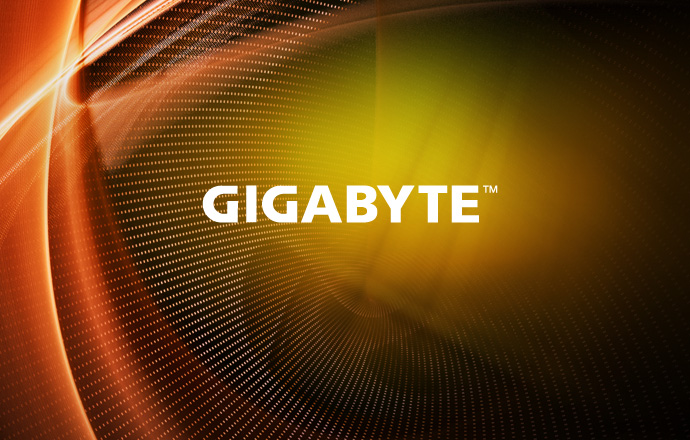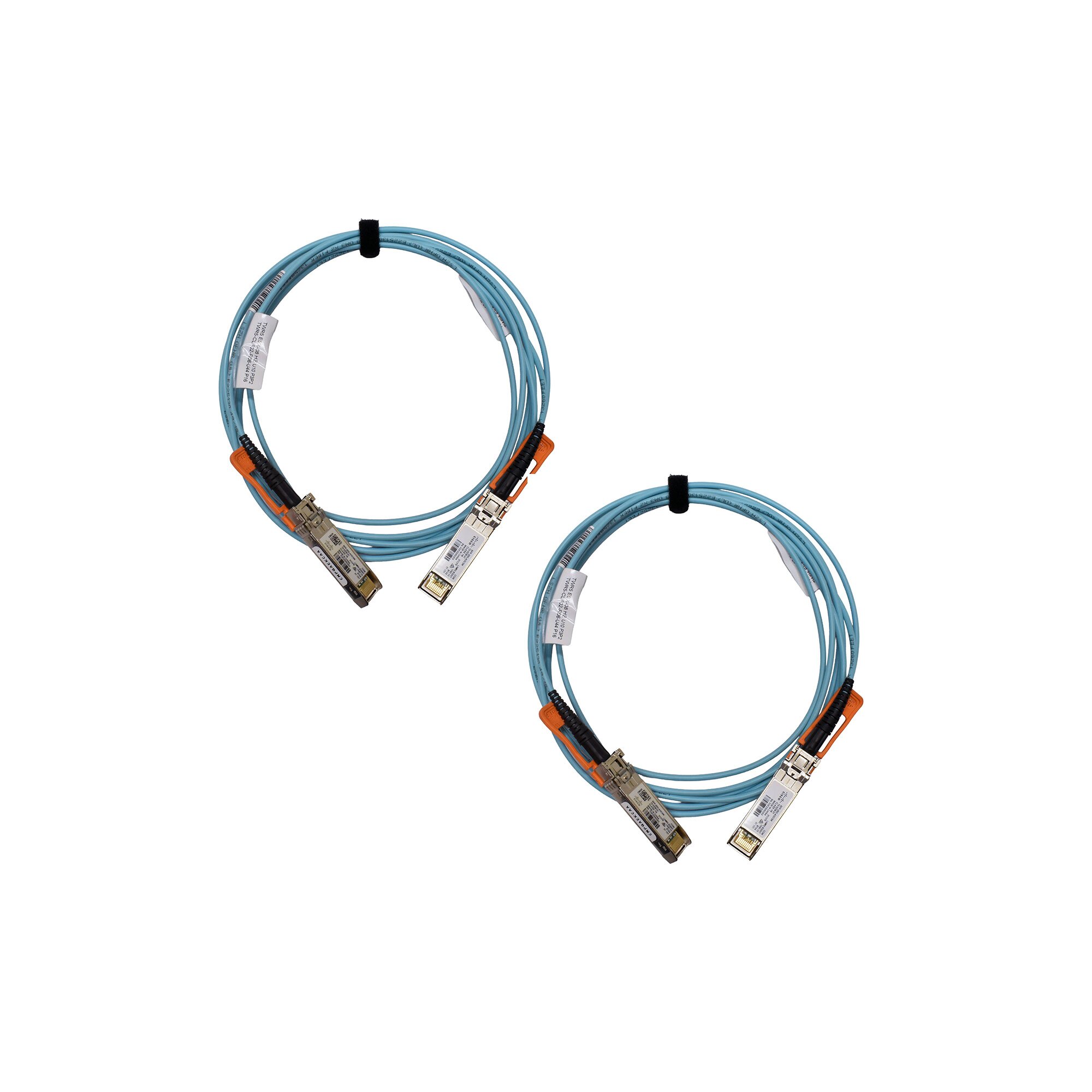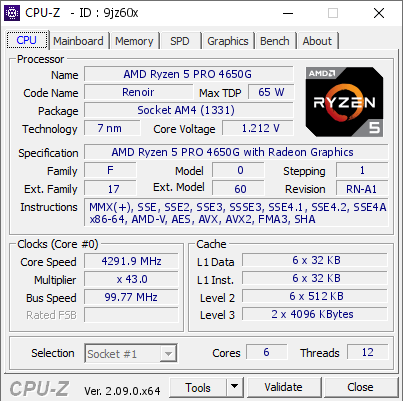Vorvorwort:
Danke an @pumuckel für das ursprüngliche Erstellen des Threads. Ich habe mich bereit erklärt den Thread zur Pflege zu übernehmen und um neue Inhalte zu ergänzen. Der ursprüngliche starter bleibt vorerst als Spoiler im letzten Abschnitt angehängt, damit keine Inhalte verloren gehen.
Vorwort:
Erstmalig in Erscheinung ist das Gigabyte MC12-LE0 kurz vor Weihnachten 2023 auf mydealz getreten. Mit einem Preis von <50€ Neuware war es ein no-brainer, um noch einen günstigen Server auf AM4-Basis zusammen zu stellen.
Zuletzt ab Nov.2024 sind die Preise jeedoch durch die Decke gegangen und es ist bedauerlicherweise kein wirklich günstiges Brett mehr zu bekommen. Insofern sollte man gut überlegen/durchrechnen, ob es nicht doch sinnvoller ist auf eine neuere Plattform wie z. B. AM5 zu setzen. Am (21.10.2024) lag der Preis noch bei ~60, wobei spitzenpreise bei 30€ lagen. Ähnliche Boards (AsRock Rack) und auch der Nachfolger MC13 liegen meist bei >300 €.
Von Gigabyte ist es als mATX Enterprise-Workstation-Motherboard eingestuft und eignet sich insbesondere wegen IPMI/BMC auch für den Servereinbau.
Eine nett gemeinter Hinweis vorweg: Wenn du neu bist wärst du nicht der erste, welcher mit dem Updateprozess (BMC & BIOS) und der Hardwareauswahl (Kompatibilität) Probleme hättest. Lies gerne den Starter, bevor du mit Planung und Umsetzung startest.
Viele Dinge werden auch im Thread diskutiert, es ist jedoch mein Bestreben die wichtigsten Dinge im Starter als zentrales Nachschlagewerk zu sammeln und würde dich bitten zunächst einmal dort nach deinem Problem zu suchen oder auch die Suchfunktion des Threads nach ähnlichen Beiträgen zu nutzen. Ich bin über jeden Hinweis zu fehlenden Inhalten im Starter dankbar und ergänze dieser gerne.
Das Board ist alleine oder oft für wenige Euro mehr mit einem kleinen Gelid Kühler erhältlich. Erster Händler, welcher es zu einem sehr günstigen Preis angeboten hat war piospartslab über ebay bzw. den eigenen Onlineshop. In beiden Fällen konnte man in Kombination mit Gutscheincodes nochmals günstigere Preise erreichen. Die meiste Zeit ist/war dieser Händler auf einem der Verkaufswege am günstigsten und ist nicht bei geizhals gelistet.
Wenn einem das Board zusagt, jedoch weniger Leistung braucht oder noch weniger ausgeben möchte und bastelwillig ist kann ein Blick auf das Nachbarboard mit SoC quadcore Epyc MJ11-EC1 lohnen.
In der Vergangeheit gab es sowohl bei eBay als auch Piospartslab immer mal wieder Rabattgutscheine. Die Zeit scheint vorbei.
Erste Erwähnung im Luxx:


Grafischer Vergleich (danke @Haldi):

*Beim 5950X und teilweise auch anderen "großem" CPUs mit vielen Kernen wurde von Instabilitäten berichtet, da die Spannungsversorgung wohl realativ knapp bemessen ist. Unterschiedliche Nutzer haben die CPU mit unterschiedlichen Methoden stabil bekommen:
Es gibt zwei Möglichkeiten das BIOS und die BMC Firmware zu upgraden: per UEFI oder BMC. Ich habe nur letzteres verwendet, andere finden das Update per UEFI einfacher.
per BMC:
Ich habe gerade keine Zeit einen ganzen Guide zu machen, aber dir PDF dort sollte helfen:

 www.gigabyte.com
www.gigabyte.com
Alternativ:
to-DO:

 www.hardwareluxx.de
www.hardwareluxx.de
Danke an @pumuckel für das ursprüngliche Erstellen des Threads. Ich habe mich bereit erklärt den Thread zur Pflege zu übernehmen und um neue Inhalte zu ergänzen. Der ursprüngliche Starter bleibt hier vorerst (oder auch für immer) angehängt, damit keine Inhalte verloren gehen.
#
#
Danke an @pumuckel für das ursprüngliche Erstellen des Threads. Ich habe mich bereit erklärt den Thread zur Pflege zu übernehmen und um neue Inhalte zu ergänzen. Der ursprüngliche starter bleibt vorerst als Spoiler im letzten Abschnitt angehängt, damit keine Inhalte verloren gehen.
Vorwort:
Erstmalig in Erscheinung ist das Gigabyte MC12-LE0 kurz vor Weihnachten 2023 auf mydealz getreten. Mit einem Preis von <50€ Neuware war es ein no-brainer, um noch einen günstigen Server auf AM4-Basis zusammen zu stellen.
Zuletzt ab Nov.2024 sind die Preise jeedoch durch die Decke gegangen und es ist bedauerlicherweise kein wirklich günstiges Brett mehr zu bekommen. Insofern sollte man gut überlegen/durchrechnen, ob es nicht doch sinnvoller ist auf eine neuere Plattform wie z. B. AM5 zu setzen. Am (21.10.2024) lag der Preis noch bei ~60, wobei spitzenpreise bei 30€ lagen. Ähnliche Boards (AsRock Rack) und auch der Nachfolger MC13 liegen meist bei >300 €.
Von Gigabyte ist es als mATX Enterprise-Workstation-Motherboard eingestuft und eignet sich insbesondere wegen IPMI/BMC auch für den Servereinbau.
Eine nett gemeinter Hinweis vorweg: Wenn du neu bist wärst du nicht der erste, welcher mit dem Updateprozess (BMC & BIOS) und der Hardwareauswahl (Kompatibilität) Probleme hättest. Lies gerne den Starter, bevor du mit Planung und Umsetzung startest.
Viele Dinge werden auch im Thread diskutiert, es ist jedoch mein Bestreben die wichtigsten Dinge im Starter als zentrales Nachschlagewerk zu sammeln und würde dich bitten zunächst einmal dort nach deinem Problem zu suchen oder auch die Suchfunktion des Threads nach ähnlichen Beiträgen zu nutzen. Ich bin über jeden Hinweis zu fehlenden Inhalten im Starter dankbar und ergänze dieser gerne.
Inhaltsverzeichnis
- Das Angebot
- Technische Daten
- Prozessor Support
- Anleitungen & Guides
- Bekannte Probleme
- FAQs
- Verbrauchswerte
- Linksammlung
- Vorheriger Starter
1. Das Angebot Nach oben
Das Board ist alleine oder oft für wenige Euro mehr mit einem kleinen Gelid Kühler erhältlich. Erster Händler, welcher es zu einem sehr günstigen Preis angeboten hat war piospartslab über ebay bzw. den eigenen Onlineshop. In beiden Fällen konnte man in Kombination mit Gutscheincodes nochmals günstigere Preise erreichen. Die meiste Zeit ist/war dieser Händler auf einem der Verkaufswege am günstigsten und ist nicht bei geizhals gelistet.Wenn einem das Board zusagt, jedoch weniger Leistung braucht oder noch weniger ausgeben möchte und bastelwillig ist kann ein Blick auf das Nachbarboard mit SoC quadcore Epyc MJ11-EC1 lohnen.
| (ehemals Bestpreise, aktuell am teuersten) | (ehemals Bestpreise, aktuell am teuersten) | ||
| Nur Mainboard MC12-LE0 | geizhals | ebay Piospartslap | Piospartslap |
| Mit Gelid Kühler | RAM-König | eBay Piospartslap | Piospartslap |
In der Vergangeheit gab es sowohl bei eBay als auch Piospartslab immer mal wieder Rabattgutscheine. Die Zeit scheint vorbei.
Erste Erwähnung im Luxx:
2. Technische DatenNach oben
- mATX B550 AM4 Board für 3000-5000 AMD Ryzen (Achtung: keine 3000er Zen+ Picasso!)
- bis zu 128 GB unbuffered (UDIMM) ECC oder non ECC (DDR4 2133-3200) (Achtung: KEIN registred/RDMM und KEIN LRDIMM!)
- 2 x 1GbE LAN ports (Intel® I210-AT)
- 1 x 10/100/1000 dedizierter management LAN port
- Integrated in Aspeed® AST2500
- "mini" onboard GPU zur Administation
- 2D Video Graphic Adapter with PCIe bus interface
1920x1200@60Hz 32bpp
- Erweiterungsslots
- 1 x PCIe 4.0 x16 (Gen4 x16 bus)slot from CPU
- CPUs: Bitfuraction 8/8, 8/4/4 und 4/4/4/4 möglich
- APUs: Bitfuraction nur 8/8 und 8/4/4 bzw 4/4/8 möglich
- 1 x PCIe 4.0 x4 (Gen4 x4 bus)slot from CPU
- (im Gegensatz zu anderen Boards direkt von der CPU = weniger Latenz und Probleme) ... die meisten Boards nutzen die Anbindung für die NVMe [@pumucke]
- M.2 slot (über Chipsatz angebunden):
- M-key
- PCIe 3.0 x1 (max brutto 0,97 GByte/s)
- 1 x PCIe 4.0 x16 (Gen4 x16 bus)slot from CPU
- Aspeed® AST2500 management controller
GIGABYTE Management Console (AMI MegaRAC SP-X) web interface
- Dashboard
- HTML5 KVM
- Sensor Monitor (Voltage, RPM, Temperature, CPU Status …etc.)
- Sensor Reading History Data
- FRU Information
- SEL Log in Linear Storage / Circular Storage Policy
- Hardware Inventory
- Fan Profile
- System Firewall
- Power Consumption
- Power Control
- LDAP / AD / RADIUS Support
- Backup & Restore Configuration
- Remote BIOS/BMC/CPLD Update
- Event Log Filter
- User Management
- Media Redirection Settings
- PAM Order Settings
- SSL Settings
- SMTP Settings
- nur bedingt für normale Desktop Systeme zu empfehlen
- sehr wenig I/O-Ports (2x USB 3.1)
- VGA nur für onboard Grafik, keine Bildausgabe einer APU
- kein onboard Sound
3. Prozessor SupportNach oben
- [Herstellerseite] Download: QVL Liste (mehr aber nicht alle CPUs aus der Tabelle unten)
- Bei den 3000er Picasso APUs könnte man wegen der Namensgebung vermuten, dass sie laufen. Tun sie aber nicht (Zen+)
| CPU | Passmark multicore | Passmark singlecore | Support? | APU | ECC (+/Nein) | iGPU |
| Intel N100 | 5504 | 1943 | Nein | |||
| i5-8500 | 9581 | 2452 | Nein | |||
| 3100 | 11598 | 2420 | QVL | - | + | |
| 4650G Pro | 16166 | 2653 | QVL | APU | + | + |
| 3600 | 17748 | 2567 | QVL | - | + | |
| 3600x | 18919 | 2652 | QVL | - | + | |
| i5-12400 | 19363 | 3519 | Nein | |||
| E5-2690v4 | 19470 | 2074 | Nein | |||
| 5500 (kein ECC) | 19398 | 3058 | APU | APU | Nein | N |
| 5600G (kein ECC) | 19874 | 3190 | APU | APU | Nein | + |
| 5650G Pro | 20771 | 3252 | y | APU | + | + |
| 5600 | 21576 | 3258 | y | - | + | |
| 5600x | 21888 | 3361 | QVL | - | + | |
| 3700x | 22542 | 2660 | QVL | - | + | |
| 5700 (kein ECC) | 24268 | 3250 | ? | APU | Nein | N |
| 5700x | 26658 | 3382 | y | - | + | |
| 5800X3D | 28304 | 3233 | siehe #2.893 @JVN | - | ||
| i5-13500 | 31854 | 3884 | Nein | |||
| 3900x | 32620 | 2706 | y | - | + | |
| 5950x | 45599 | 3468 | QVL, *Kühlung beachten | - | + |
Grafischer Vergleich (danke @Haldi):
*Beim 5950X und teilweise auch anderen "großem" CPUs mit vielen Kernen wurde von Instabilitäten berichtet, da die Spannungsversorgung wohl realativ knapp bemessen ist. Unterschiedliche Nutzer haben die CPU mit unterschiedlichen Methoden stabil bekommen:
- Wasserkühlung
- Top-Blower (Thermalright baut große, leise)
- Undervolting
- Begrenzung der Leistungsaufnahme (PBO?)
- hoher Airflow im Gehäuse
- die Spannungswandler sind beim silbernen Kühlkörper links unter dem CPU Sockel (stimmt das?)
4. Anleitungen / GuideNach oben
4.1 UpdatesNach oben
Treiber, BIOS/UEFI und Firmware Updates gibt es auf der Herstellerseite.Es gibt zwei Möglichkeiten das BIOS und die BMC Firmware zu upgraden: per UEFI oder BMC. Ich habe nur letzteres verwendet, andere finden das Update per UEFI einfacher.
per BMC:
- eine unterstütze CPU einsetzen (bei mir ging es auch mit einem 5650G, welcher nicht auf der QVL steht)
- einen Ramstick in Slot A1
- Managment Lan mit Router verbinden
- Board Starten (es muss laufen für den Update Prozess)
- IP des Managment Interfaces Herausfinden (z. B. über ein fritzbox Menü)
- mit der IP mit einem anderen Recher im gleichen Netzwerk verbinden
- die Zugangsdaten stehen auf dem Karton und auf dem x16 PCIe Slot
- die Flashvorgänge können bis zu 15 Minuten dauern, in der Zeit auf keinen Fall vom Strom trennen!
- bei mir war nach erfolgreichem BIOS Update ein komplett stromlos machen des Boards für mehrere Minuten erforderlich
- wenn man nur eine CPU hat, welche erst ab einerhöheren BIOS-Version unterstützt wird wäre meine Präferenz zuerst das BIOS zu updaten (wegen möglichem "BMC Passwort Brick")
- BIOS Update
- image.RBU Datei in Mode:Bios flashen
- Bilder: [externe Seite] BIOS Update Gigabyte Server
- BMC Update
- rom.ima_enc in Mode:BMC flashen
- Bilder: [externe Seite] IPMI Update Gigabyte Server
- eine CPU die auf der QVL ist einsetzen (aber die meisten 3er und 5er non -APUs klappen)
- einen Ramstick in Slot A1 (hier sind 2133er wohl problemfreier als 3200er)
- Tast/Maus/mon anschließen
- System starten und abwarten (erster Start dauert etwas)
- Achtung: der Browser sollte keinen Popup/script Schutz haben (notfalls einfach kurz ausmachen)
- dann entweder per BMC oder per UEFI den BMC updaten (kann locker > 15 Min dauern, achtet auf die grüne "Heartbeat LED") - Full Flash
- dann (wenn nötig) kurz restarten
- dann das Bios entweder per BMC oder per UEFI updaten
- dann runterfahren
- Power trennen vom Board für 1-2 Minuten (aka das Netzteil abziehen)
- nach 1-2 Minuten wieder anstecken und Spass haben
4.2 Reset BMC PasswortNach oben
Bei mir konnte ich mich bei einem von drei Boards nach einem BMC Update nicht mehr einloggen. Andere berichten von ähnlichen vorfällen. Ein Rücksetzen des BMC-Passwortes brachte abhilfe.Ich habe gerade keine Zeit einen ganzen Guide zu machen, aber dir PDF dort sollte helfen:

BMC Unique Pre-Programmed Password Implementation Announcement | Security & Technical Advisory - GIGABYTE U.K.
Dear Valued Customers & Partners,Beginning in March 2020, GIGABYTE will begin implementing a new security feature for the BMC firmware stack on all our ...
Alternativ:
Ich versuche erstmal diesen Weg aus dem L1Tech Forum...
How to reset BMC / MegaRAC SP-X / IPMI passwords / login details on Gigabyte Motherboards
For the ones who still wonder how to use it and need an idiot-proof guide:
and voilá, you changed the password now and access your account. enjoy your new access to the GIGABYTE Server Management Platform!
- download ipmicfg for UEFI from supermicro’s website
- put it on a FAT32 formatted USB drive
- start your machine and boot via UEFI shell
- connect your USB drive
- once u r in the shell, type “map -r” to see which name your drive has (usually “FS0:” or “FS1:”)
- enter your drive by typing the drive name, in my case, it was “FS0:”
- navigate to the impicfg folder containing the IPMICFG.efi file with command cd
- now you can list all users by using the command “user list”, together with the file name: “IPMICFG.efi -user list”
- take note of the user ID
- set a new password with the command “-user setpwd < user ID > < password >” together with the file name “IPMICFG.efi -user setpwd < user ID > < password >”
4.3 Effiziente PCIe Lane-NutzungNach oben
Vorab nochmal die bemerkung, dass die kompatiblen Ryzen APUs generell nur PCIe 3.0 mit der halben Bandbreite von PCIe 4.0 bieten.- Der PCIe4.0 x4 Slot ist hinten offen, sodass hier auch größere Karten (10Gbit Ethernet oder GPU z.B.) mit weniger Lanes und entsprechend geringerer aber oft auch ausreichender Bandbreite betrieben werden können. Hier sollte man im Einzelfall nochmal prüfen/nachfragen ob bei einer bestimmten Karte Leistungseinbußen zu erwarten sind.
- Der PCIe3.0 x1 M.2 Slot ist lediglich mit PCIe3.0 x1 über den Chipsatz angebunden, was jedoch für viele Anwendungen ausreicht. Insbesondere einfache Sata Controller oder auch bis zu 5 Gbit Ethernet. Hier besteht die möglichkeit M.2 Riser Karten auf full Size PCIe zu nutzen oder auch direkt M.2 Karten mit einem Sata Controller oder 2,5 Gbit oder auch 5 Gbit Ethernet Adapter, um sich Lanes der CPU für andere Verwendungszwecke frei zu halten.
- Der PCIe4.0 x16 Slot lässt sich kostenintensiv über teure und verbrauchsstarke Karten mit aktiven PCIe Switches quasi nach belieben aufteilen. Eine deutliche günstigere Möglichkeit bietet hier Bitfurcation. Die APUs mit PCIe 3.0 lassen sich in x16, x8x8 und x8x4x4 aufteilen. Die CPUs mit PCIe 4.0 in x16, x8x8, x8x4x4 und auch x4x4x4x4 aufteilen. Bei PCIe 4.0 sei angemerkt, dass das Signal bei der Nutzung von Riser Karten/Kabeln anfälliger ist.
Eine Sehr kostengünstige (Aliexpress <10€, bei Ebay und Amazon <20€) Möglichkeit bietet ein passiver Adapter, welcher z. B. als "PCIe X16 To X8+X4+X4 Expansion Riser Card Extended Card PCIE4.0 M.2 PCIE Adapter" bezeichnet wird. Dieser wird in den x16 Slot eingesteckt und für 8 Lanes auf einen physischern x16 Slot und jeweils vier Lanes auf zwei M.2 Slots. Die M.2 Slots können dann für zwei NVME SSDs oder mit bereits genannten M.2 Controllerkarten genutzt werden. "PCIe X16 To X8+X4+X4 Expansion Riser" kommt jedoch ohne Slotblech und erfordert ggf. eine kreative Lösung. Besonders bietet sich hier die Nutzung mit einer Low-Profile GPU oder Controllerkarte an. - Möchte man tatsächlich 4 NVME mit maximaler Geschwindigkeit im x16 PCIe Slot nutzen bietet sich die ASRock RB4M2 4x M.2 M2 NVMe Quad SSD zu PCI-Express PCIe x16 Adapter Konverter Karte für aktuell 15€ an. Nutzt man die Karte mit einer APU, kann man hier nur 3 NVMEs anschließen.
to-DO:
- Anbindung vom M2, sinnvollste Nutzung der PCIe
- iGPU
-
Also auch mit F18 gehts mit VirGL, musst UMA_specified einstellen.
-
mir hat für erfolgreiches Passthrough folgender Link geholfen:
Habe einen 5650G mit Bios Version F15 im Einsatz.GitHub - isc30/ryzen-gpu-passthrough-proxmox: Get the Ryzen processors with AMD Radeon 680M/780M integrated graphics or RDNA2/RDNA3 GPUs running with Proxmox, GPU passthrough and UEFI included.
Get the Ryzen processors with AMD Radeon 680M/780M integrated graphics or RDNA2/RDNA3 GPUs running with Proxmox, GPU passthrough and UEFI included. - isc30/ryzen-gpu-passthrough-proxmoxgithub.com
-
Ich habe mal testweise meinen Jellyfin Server runtergefahren und getestet, ob nach dem Hochfahren das transcoding noch funktioniert. Das war gar kein Problem, hat alles geklappt.
Danach habe ich die iGPU an eine Windows 10 VM durchgereicht und war nicht in der Lage, einen Treiber zu installieren.
-
5. Problembehandlung Nach oben
- Reset BMC-PW
- 5950X Abstürze
6. FAQsNach oben
- Es müssen alle 8 Pins des CPUs-Anschlusses verbunden werden, damit alle Funktionen des Mainbaords fehlerfrei laufen.
- Lüfterprofil
- Stromverbrauch zu hoch (im BIOS gemessen, Systeamatisches Abklemmen von Komponenten, Minimalkonfiguration, 30W Thread)
- KVM-Konsole öffnen
- Web-BIOS aufrufen
7. VerbrauchswerteNach oben
- 5600x Idle: 22W (@ebniv )
- 5650G Idle: 16W (@ebniv)
- die Liste soll später ergänzt werden, evtl. auch als Tabelle oder Online Sheet

[Sammelthread] - Die sparsamsten Systeme (<30W Idle)
++ Update ++ Die Liste ist jetzt als Google online Tabelle verfügbar (vielen Dank dafür an -DDD-) und wird nur noch dort weitergepflegt http://goo.gl/z8nt3A Es wurde ja schon öfter vorgeschlagen, mal in einem Thread nur die Mess-Ergebnisse der sparsamsten Systeme zu posten und da sich Niemand...
8. LinksammlungNach oben
- [Herstellerseite] MC12-LE0 Rev. 1.x
- [Herstellerseite] Download: Datenblatt beim Hersteller
- [Herstellerseite] Download: QVL Liste
- [geizhals] Preisvergleich und Daten
- [externe Seite] IPMI Update Gigabyte Server
- [externe Seite] BIOS Update Gigabyte Server
- Forum: servethehome (STH)
- Forum: level1techs (L1T)
9. Früherer StartbeitragNach oben
Danke an @pumuckel für das ursprüngliche Erstellen des Threads. Ich habe mich bereit erklärt den Thread zur Pflege zu übernehmen und um neue Inhalte zu ergänzen. Der ursprüngliche Starter bleibt hier vorerst (oder auch für immer) angehängt, damit keine Inhalte verloren gehen.------------- Vorwort, Credits und Angebote
Vorwort:
Wer mir ein vergleichbares NEUWARE Mainboard zu dem Preis mit den Features nennen kann, der darf dies gern tun.... bisher fand ich keines unter 200-400€
hingewiesen darauf hat @sch4kal zuerst im Marktplatz Link Thread
Vergleichbare MBs (ab 390€ mit PCIe 4.0):

 geizhals.de
geizhals.de
Unterstützte CPUs: AMD 3000er und 5000er (und mit F15 wohl auch APUs mit intern - aka für VMs nutzbarer aber nicht extern - nutzbarer IGP)
Bestpreise lagen um die 35€ für das Board (ultra low war mal 27€ bei 4 Stück inkl kühler)
mit low profile Kühler:

ohne low profile Kühler
(hier die Gutscheine beachten!)
im Webshop von Pio (Ergänzung auf Userwunsch):

 www.piospartslap.de
www.piospartslap.de
(hier die Widerrufsbelehrung beachten!)
------------- Zur Hardware



 www.gigabyte.com
www.gigabyte.com
mAtx B550 Am4 Board für 3000-5000er AMD CPUs
bis zu 128GB unbuffered ECC oder non ECC (DDR4 2133-3200) (ACHTUNG: KEIN REGISTERED ECC sondern unbuffered ECC)
2 x 1GbE LAN ports (Intel® I210-AT)
1 x 10/100/1000 management LAN
Integrated in Aspeed® AST2500
2D Video Graphic Adapter with PCIe bus interface
1920x1200@60Hz 32bpp
Expansion Slots
1 x PCIe x16 (Gen4 x16 bus) slot from CPU (Bifurcation 4/4/4/4 fähig mit NON -APUs)
Kommentar: setzt hier also normale CPUs ein . der 5600 (non x) ist imho hier ein sweetspot oder auch ein gebrauchter 3600x/3700x/3900x ...
generell würde ich bei 65W CPUs bleiben oder entsprechend die CPU limitieren (cTPU)
APUs können keine 4/4/4/4 bifurcation
1 x PCIe x4 (Gen4 x4 bus) slot from CPU (im Gegensatz zu anderen Boards direkt von der CPU = weniger Latenz und Probleme)
... die meisten Boards nutzen die Anbindung für die NVMe
1 x M.2 slot (über Chipsatz angebunden): (imho gut für ne kleine 128/256GB M2 SSD fürs OS - sowas bekommt ja nachgeworfen aus EDU stores und viele davon haben oft eh nur 2x PCIe 3.0)
- M-key
- PCIe Gen3 x1 (max brutto 0,97 GByte/s)
- Supports NGFF-2242/2280 cards
Board Management
Aspeed® AST2500 management controller
GIGABYTE Management Console (AMI MegaRAC SP-X) web interface
------------- Kühlerempfehlung
Top Blow der die Spawas links unter dem CPU Sockel abdeckt (Thermalright baut nette)
.. damit ist der silberne Kühlkörper links unter dem CPU Sockel gemeint
------------- Bios, BMC Firmware, Treiber
offizielle:
BMC: 12.61.21
Bios: F15
hier: https://www.gigabyte.com/de/Enterprise/Server-Motherboard/MC12-LE0-rev-1x#Support
die einfachste Weise das Board auf den aktuellen Stand zu bringen:
eine CPU die auf der QVL ist einsetzen (aber die meisten 3er und 5er non -APUs klappen)
einen Ramstick in Slot A1 (hier sind 2133er wohl problemfreier als 3200er)
Tast/Maus/mon anschließen
System starten und abwarten (erster Start dauert etwas)
Achtung: der Browser sollte keinen Popup/script Schutz haben (notfalls einfach kurz ausmachen)
dann entweder per BMC oder per UEFI den BMC updaten (kann locker > 15 Min dauern, achtet auf die grüne "Heartbeat LED") - Full Flash
dann (wenn nötig) kurz restarten
dann das Bios entweder per BMC oder per UEFI updaten
dann runterfahren
Power trennen vom Board für 1-2 Minuten (aka das Netzteil abziehen)
nach 1-2 Minuten wieder anstecken und Spass haben
es geht auch komplett per BMC aber für viele ist das schwieriger als es rein mit CPU und Ram gleich zu machen
ich z.B. hab grad 2 Boards von F06 (Auslieferungszustand) direkt auf aktuelle BMC und BIOS F15 per BMC (mit CPU/Ram eingesetzt) ohne Probleme geupdated (21-9-2024)
------------- Reset des BMC Passwort

 www.gigabyte.com
www.gigabyte.com
... hier das PDF beachten
------------- Q&A
Passmark Scores ausgewählter CPUs zum Vergleich :
i5-8500: 9581 (6 Core S1151)
3600: 17776 (Zen2)
3600x: 18227 (Zen2)
i5-12400: 19557
E5-2690v4 : 19619 (S2011-3)
5600: 21592 <------ P/L
5600x: 21926
3700x: 22598 (Zen2)
5700x: 26738
i5-13500: 32250
3900x: 32678 (Zen2)
5950x: 45633 (hier muss aber wohl manuell die Spannung begrenzt werden (glaube unter 1,4V)) - aber gute Performance/W/€
------------- Links zu anderen Forendiskussionen
STH: https://forums.servethehome.com/ind...oard-mc12-le0-re1-0-amd-b550-am4-ryzen.42579/
L1T: https://forum.level1techs.com/t/gigabyte-mc12-le0/183692/21
------------- User Anmerkungen (selbst nicht geprüft)
@BobbyD:
Vorwort:
Wer mir ein vergleichbares NEUWARE Mainboard zu dem Preis mit den Features nennen kann, der darf dies gern tun.... bisher fand ich keines unter 200-400€
hingewiesen darauf hat @sch4kal zuerst im Marktplatz Link Thread
Vergleichbare MBs (ab 390€ mit PCIe 4.0):
Mainboards mit Formfaktor: µATX, Besonderheiten: IPMI Preisvergleich Geizhals Deutschland
Preisvergleich und Bewertungen für Mainboards mit Formfaktor: µATX, Besonderheiten: IPMI
Unterstützte CPUs: AMD 3000er und 5000er (und mit F15 wohl auch APUs mit intern - aka für VMs nutzbarer aber nicht extern - nutzbarer IGP)
Bestpreise lagen um die 35€ für das Board (ultra low war mal 27€ bei 4 Stück inkl kühler)
mit low profile Kühler:

Cisco SFP-25G-AOC3M 25G 10-3228-01 aktives optisches SFP28 Kabel 3m | eBay.de
SFP-25G-AOC3M 25G aktives optisches SFP28 Kabel 3M. 1 x Cisco SFP-25G-AOC3M 25G 3m Kabel. MPN: 10-3228-01. Technical data / Technische Daten. HP 530FLR-SFP+ 2-Port PCIe x8 10 GbE Network Adapter 647579-001 649869-001.
www.ebay.de
ohne low profile Kühler
(hier die Gutscheine beachten!)
im Webshop von Pio (Ergänzung auf Userwunsch):

2 x Cisco SFP-25G-AOC3M 25G 10-3228-01 aktives optisches SFP28 Kabel 3m - Piospartslap
Cisco SFP-25G-AOC3M 25G aktives optisches SFP28 Kabel 3M MPN: 10-3228-01 Technical data / Technische Daten Manufacturer / Hersteller Cisco
(hier die Widerrufsbelehrung beachten!)
------------- Zur Hardware
Gigabyte Mainboard MC12-LE0

MC12-LE0 (Rev. 1.x) | Server-Motherboard - GIGABYTE Germany
Motherboard - AMD Ryzen™ 5000/4000/3000 Series - microATX UP
mAtx B550 Am4 Board für 3000-5000er AMD CPUs
bis zu 128GB unbuffered ECC oder non ECC (DDR4 2133-3200) (ACHTUNG: KEIN REGISTERED ECC sondern unbuffered ECC)
2 x 1GbE LAN ports (Intel® I210-AT)
1 x 10/100/1000 management LAN
Integrated in Aspeed® AST2500
2D Video Graphic Adapter with PCIe bus interface
1920x1200@60Hz 32bpp
Expansion Slots
1 x PCIe x16 (Gen4 x16 bus) slot from CPU (Bifurcation 4/4/4/4 fähig mit NON -APUs)
Kommentar: setzt hier also normale CPUs ein . der 5600 (non x) ist imho hier ein sweetspot oder auch ein gebrauchter 3600x/3700x/3900x ...
generell würde ich bei 65W CPUs bleiben oder entsprechend die CPU limitieren (cTPU)
APUs können keine 4/4/4/4 bifurcation
1 x PCIe x4 (Gen4 x4 bus) slot from CPU (im Gegensatz zu anderen Boards direkt von der CPU = weniger Latenz und Probleme)
... die meisten Boards nutzen die Anbindung für die NVMe
1 x M.2 slot (über Chipsatz angebunden): (imho gut für ne kleine 128/256GB M2 SSD fürs OS - sowas bekommt ja nachgeworfen aus EDU stores und viele davon haben oft eh nur 2x PCIe 3.0)
- M-key
- PCIe Gen3 x1 (max brutto 0,97 GByte/s)
- Supports NGFF-2242/2280 cards
Board Management
Aspeed® AST2500 management controller
GIGABYTE Management Console (AMI MegaRAC SP-X) web interface
- Dashboard
- HTML5 KVM
- Sensor Monitor (Voltage, RPM, Temperature, CPU Status …etc.)
- Sensor Reading History Data
- FRU Information
- SEL Log in Linear Storage / Circular Storage Policy
- Hardware Inventory
- Fan Profile
- System Firewall
- Power Consumption
- Power Control
- LDAP / AD / RADIUS Support
- Backup & Restore Configuration
- Remote BIOS/BMC/CPLD Update
- Event Log Filter
- User Management
- Media Redirection Settings
- PAM Order Settings
- SSL Settings
- SMTP Settings
------------- Kühlerempfehlung
Top Blow der die Spawas links unter dem CPU Sockel abdeckt (Thermalright baut nette)
.. damit ist der silberne Kühlkörper links unter dem CPU Sockel gemeint
------------- Bios, BMC Firmware, Treiber
offizielle:
BMC: 12.61.21
Bios: F15
hier: https://www.gigabyte.com/de/Enterprise/Server-Motherboard/MC12-LE0-rev-1x#Support
die einfachste Weise das Board auf den aktuellen Stand zu bringen:
eine CPU die auf der QVL ist einsetzen (aber die meisten 3er und 5er non -APUs klappen)
einen Ramstick in Slot A1 (hier sind 2133er wohl problemfreier als 3200er)
Tast/Maus/mon anschließen
System starten und abwarten (erster Start dauert etwas)
Achtung: der Browser sollte keinen Popup/script Schutz haben (notfalls einfach kurz ausmachen)
dann entweder per BMC oder per UEFI den BMC updaten (kann locker > 15 Min dauern, achtet auf die grüne "Heartbeat LED") - Full Flash
dann (wenn nötig) kurz restarten
dann das Bios entweder per BMC oder per UEFI updaten
dann runterfahren
Power trennen vom Board für 1-2 Minuten (aka das Netzteil abziehen)
nach 1-2 Minuten wieder anstecken und Spass haben
es geht auch komplett per BMC aber für viele ist das schwieriger als es rein mit CPU und Ram gleich zu machen
ich z.B. hab grad 2 Boards von F06 (Auslieferungszustand) direkt auf aktuelle BMC und BIOS F15 per BMC (mit CPU/Ram eingesetzt) ohne Probleme geupdated (21-9-2024)
------------- Reset des BMC Passwort

BMC Unique Pre-Programmed Password Implementation Announcement | Security & Technical Advisory - GIGABYTE U.K.
Dear Valued Customers & Partners,Beginning in March 2020, GIGABYTE will begin implementing a new security feature for the BMC firmware stack on all our ...
... hier das PDF beachten
------------- Q&A
Passmark Scores ausgewählter CPUs zum Vergleich :
i5-8500: 9581 (6 Core S1151)
3600: 17776 (Zen2)
3600x: 18227 (Zen2)
i5-12400: 19557
E5-2690v4 : 19619 (S2011-3)
5600: 21592 <------ P/L
5600x: 21926
3700x: 22598 (Zen2)
5700x: 26738
i5-13500: 32250
3900x: 32678 (Zen2)
5950x: 45633 (hier muss aber wohl manuell die Spannung begrenzt werden (glaube unter 1,4V)) - aber gute Performance/W/€
------------- Links zu anderen Forendiskussionen
STH: https://forums.servethehome.com/ind...oard-mc12-le0-re1-0-amd-b550-am4-ryzen.42579/
L1T: https://forum.level1techs.com/t/gigabyte-mc12-le0/183692/21
------------- User Anmerkungen (selbst nicht geprüft)
@BobbyD:
- Das BMC Passwort steht auf dem (Anmerkung: brauner Außenkarton an der Seite) Karton
- Fürs BMC-Update über das BMC ist folgende Datei auszuwählen: "rom.ima_enc" Mode:BMC
- Fürs BIOS-Update über das BMC ist folgende Datei auszuwählen: "image.RBU" Mode:Bios
#
Zuletzt bearbeitet:

 ):
):







